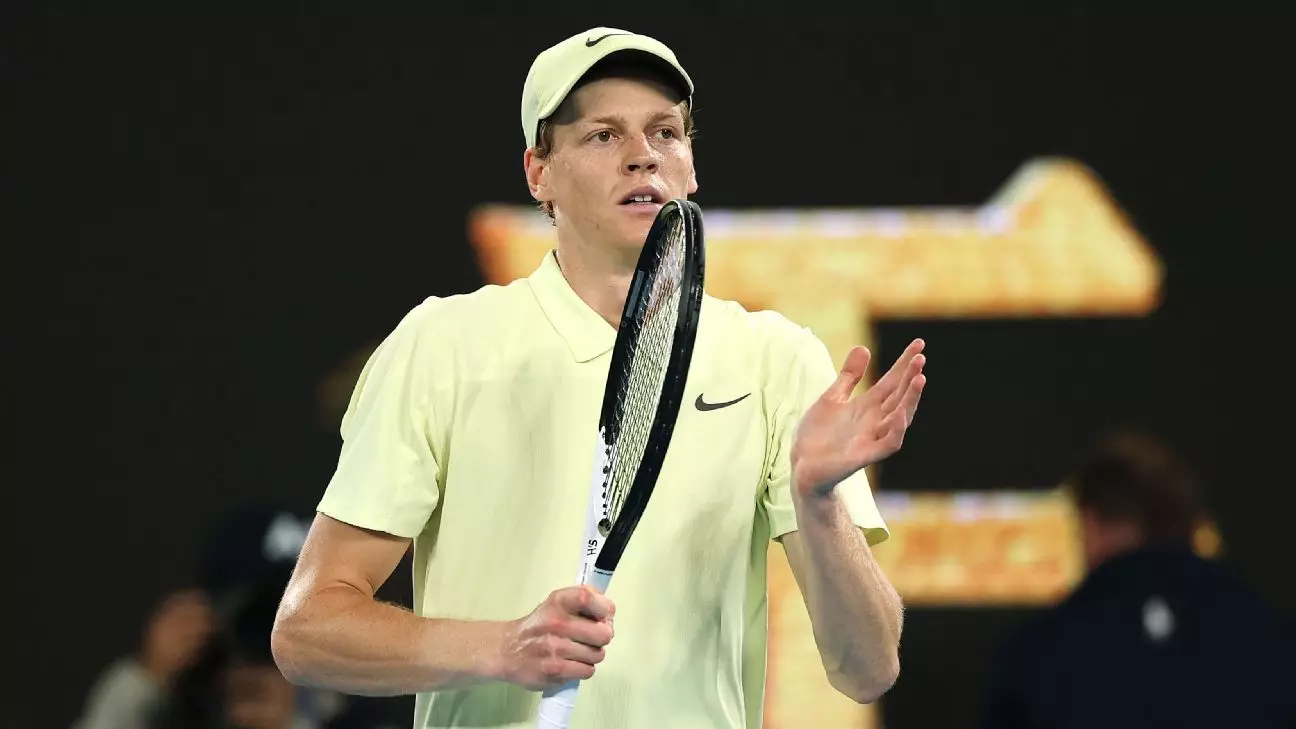The exclusion of Jannik Sinner from an upcoming exhibition event in Las Vegas marks a significant moment in the landscape of professional tennis. Scheduled for March 2, the MGM Rewards Slam will feature notable players like Casper Ruud, Alexander Zverev, Taylor Fritz, and Tommy Paul, but Sinner’s absence, the result of a three-month ban tied to doping test failures, casts a shadow over the event. Despite Sinner’s rising star status as the world No. 1, his failure to maintain the integrity expected in elite sports — a stance he publicly accepted through a settlement with the World Anti-Doping Agency (WADA) — leads to unavoidable discussions on the consequences of such infractions.
Recently, Sinner underwent scrutiny after failing two doping tests that detected trace amounts of the anabolic steroid clostebol. His defense centered around the claim that the banned substance was introduced inadvertently through a cream brought into his entourage by a former staff member. This explanation did not alleviate the fallout, as WADA challenged an initial ruling that had favored Sinner, complicating the narrative surrounding an athlete previously heralded for his promising career. The recent adjustments to his schedule, which now allows Ruud to step in, serve as a harsh reminder to Sinner—and perhaps other players—of the precarious balance between maintaining competitive success and adhering to ethical standards in sports.
From a strategic perspective, the timing of Sinner’s suspension could have been worse. Although he will miss the Las Vegas exhibition, he will be eligible to return by the early rounds of the Rome Masters, avoiding significant setbacks in major tournaments. However, the absence still raises questions about the psychological impact of such a ban. Will it taint not only his focus but also the perceptions held by both peers and fans? With the French Open looming on May 25, Sinner has a limited window to prove that he can shake off the controversy and return to form, especially after clinching three major titles recently.
The ripple effects of Sinner’s suspension will extend beyond his own career. Competitors like Ruud, Zverev, and Fritz will likely feel a shift in dynamics, particularly with Fritz having felt the sting of defeat to Sinner in last year’s US Open final. The resulting absence of a formidable player could alter their approach and mindset heading into the matches. Moreover, Sinner’s situation serves as a cautionary tale for fellow athletes, urging them to be vigilant about the substances they encounter within their support systems.
Ultimately, the reality of Sinner’s doping case emphasizes the perennial battle between talent and ethics in sports. The narrative has now shifted; it is not merely about wins, losses, or personal achievements but also about the integrity of the sport itself. As tennis enthusiasts watch the unfolding events, the discourse surrounding doping regulations and athletes’ responsibilities will undoubtedly intensify. Millions will tune in to the March exhibition, where the absence of Sinner juxtaposes the star-studded roster of his peers, leaving an indelible mark on a landscape where fair play remains paramount.

